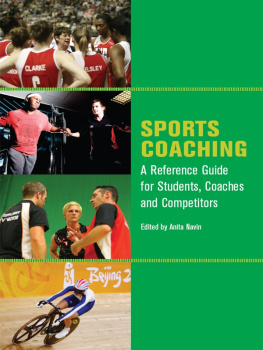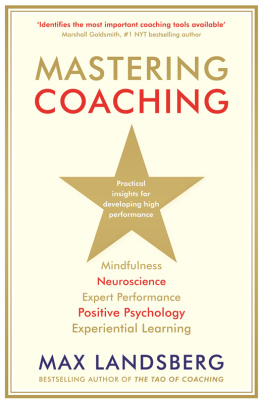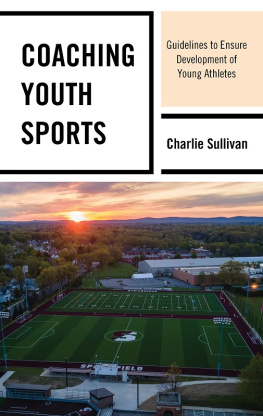A History of Sports Coaching in Britain
At the London Olympics in 2012 Team GB achieved a third place finish in the medals table. A key factor in this achievement was the high standard of contemporary British sports coaching. But how has British sports coaching transitioned from the amateur to the professional, and what can the hitherto under-explored history of sports coaching in Britain tell us about both the early history of sport and about contemporary coaching practice? A History of Sports Coaching in Britain is the first book to attempt to examine the history of British sports coaching, from its amateur roots deep in the nineteenth century to the high-performance, high-status professional coaching cultures of today.
The book draws on original primary source material, including the lost coaching lives of key individuals, to trace the development of coaching in Britain. It assesses the continuing impact of the nineteenth-century amateur ethos throughout the twentieth century, and includes important comparisons with developments in international coaching, particularly in North America and the Eastern Bloc. The book also explores the politicization of sport and the complicated interplay between politics and coaching practice, and illuminates the origins of the structures, organizations and philosophies that surround performance sport in Britain today.
This book is fascinating reading for anybody with an interest in the history of sport, sports coaching, sports development, or the relationships between sport and wider society.
Dave Day is Reader in Sports History at Manchester Metropolitan University, UK. His research interests include the history of sports coaching and constructing the biographies of coaches. His book Professionals, Amateurs and Performance:Sports Coaching in England, 17891914 was published in 2012.
Tegan Carpenter is a Sports Lecturer at Bath College, UK, where her research interests have centred on the history of coaching practice and training in the twentieth century.
Routledge Research in Sports Coaching
The Routledge Research in Sports Coaching series provides a platform for leading experts and emerging academics in this important discipline to present groundbreaking work on the history, theory, practice and contemporary issues of sports coaching. The series sets a new benchmark for research in sports coaching, and offers a valuable contribution to the wider sphere of sports studies.
Available in this series:
A History of Sports Coaching in Britain
Overcoming Amateurism
Dave Day and Tegan Carpenter
A History of Sports Coaching in Britain
Overcoming amateurism
Dave Day and Tegan Carpenter
First published 2016
by Routledge
2 Park Square, Milton Park, Abingdon, Oxon OX14 4RN
and by Routledge
711 Third Avenue, New York, NY 10017
Routledge is an imprint of the Taylor & Francis Group, an informa business
2016 D. Day and T. Carpenter
The right of D. Day and T. Carpenter to be identified as authors of this work has been asserted by them in accordance with sections 77 and 78 of the Copyright, Designs and Patents Act 1988.
All rights reserved. No part of this book may be reprinted or reproduced or utilised in any form or by any electronic, mechanical, or other means, now known or hereafter invented, including photocopying and recording, or in any information storage or retrieval system, without permission in writing from the publishers.
Trademark notice: Product or corporate names may be trademarks or registered trademarks, and are used only for identification and explanation without intent to infringe.
British Library Cataloguing in Publication Data
A catalogue record for this book is available from the British Library
Library of Congress Cataloging in Publication Data
Day, Dave.
A history of sports coaching in Britain : overcoming amateurism / Dave Day and Tegan Carpenter.
pages cm. -- (Routledge Research in Sports Coaching)
Includes bibliographical references and index.
1. Coaching (Athletics)--Great Britain--History. I. Title.
GV711.D37 2015
796.077--dc23
2015015405
ISBN: 978-1-138-02552-3 (hbk)
ISBN: 978-1-315-77506-7 (ebk)
Following failures at the Olympic Games at Stockholm in 1912, a debate ensued about the effectiveness of British coaching and this coaching discourse remained essentially unchanged two World Wars later, fuelled by ongoing pessimism about the countrys readiness to compete at the 1948 Olympics. A year before the Games, one author was proposing the establishment of a College for Coaches to redress the low standards of coaching by offering three-year courses covering first aid, psychology, massage and the modern methods of coaching,1 but not everyone agreed. While Oxbridge members of the Achilles Club, the traditional backbone of national athletics teams, conceded that coaches might be necessary in technical events, they also expressed the view that runners could acquire good technique without ever being coached and that the rigid application of a coaching system could easily ruin a man of great natural gifts.2 For the rest of the twentieth century, coaching remained a bone of contention between these traditionalists and the emerging pragmatists in British sport, leading to a slow and uneven acceptance of the role of professional coaches. Even in 2007, the national media, apprehensive about prospects for the 2008 Beijing Olympics, were debating whether or not foreign coaches should be imported to fill the gaps left in British coaching expertise over the past fifty years.3
In the end, the British team achieved a total of forty-seven medals in Beijing, including nineteen gold, and when London hosted the Games for a third time four years later, Great Britain finished third in the medal table, winning twenty-nine events, a performance unmatched since 1908. These results had been achieved through the implementation of a carefully planned and well-resourced, professionalized system that integrated sports science and medicine, intensive training centres, full-time professional coaching and greater funding for athletes. In many respects, this represented a significant achievement for the structures created by government over the previous forty years, which had seen the creation of a Sports Council in 1972 and the National Coaching Foundation in 1983 (subsequently Sports Coach UK in 2001), the introduction of the National Lottery (1994), and the focusing of elite sports support through UK Sport (1996). Equally important was that the successes of 2012 marked something of a cultural transformation in the way that British professional coaches were perceived, by the media, by the public and by the National Governing Bodies (NGBs) of sport.
This comparatively recent shift towards a systematic programme of competitive preparation represented a significant change from the amateur approach taken to coaches, training, government involvement and centralized funding that had characterized British sport since the late nineteenth century. It is a change that has received little attention from researchers, and the history of sports coaching is distinguished primarily by the paucity of reference works available on this topic, somewhat surprising given that the coach has been ever-present since Classical times. The aim here is to stimulate academic study into the history of British coaching, particularly in the twentieth century, and to establish something of a template for future research. Key features of this text are its focus on how structures and environment impacted on coaching lives and its emphasis on the centrality of the individual to coaching history. In the years before the creation of regulatory bodies of sport, the development of activities such as pedestrianism (the forerunner of modern athletics) and swimming was entirely dependent on the drive and initiative of motivated men and women.4 Although this changed somewhat during the late nineteenth century, when middle-class organizations assumed the control and direction of British sport, the role of the individual coaching innovator was never entirely marginalized and coaches such as Geoff Dyson and Bert Kinnear, who operated in the decades following the Second World War, displayed many of the characteristics of their predecessors.









